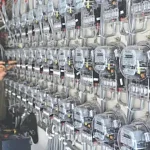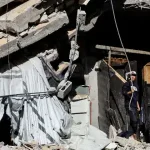The international commitment to ‘Education for All’ necessitates a nonpartisan and uncompromising policy.
The European Union has made support for secondary education in Afghanistan conditional, meaning that only those schools that allow girls to attend lessons would get funds. If you are unfamiliar with the Taliban and the Afghan social fabric, it appears to be a very rational and encouraging action.
During a briefing to the European Parliament’s development committee, Jutta Urpilainen, a Finnish politician and commissioner in charge of the European Commissioner for International Partnerships, stated that “the EU will only offer secondary education support in places where girls are guaranteed access to it.” She saw her action as an attempt to exert “pressure” over the Taliban by using funding, as well as a message to the Taliban that the EU is serious about European ideals and what they have instructed them (the Taliban) to accept.
Isn’t it terrible that the West learned nothing about the Taliban or Afghan societal fabric after fleeing the US-led Afghan war against the Taliban that lasted 20 years? Was there ever a time when the Taliban accepted a conditional offer? ‘Absolutely Not,’ says the answer.
Furthermore, did Europe not realize that, from 2001 to 2021, US-backed regimes in Afghanistan failed to modify the social model of Afghan women in relation to their womanhood and failed to successfully implement the women’s education system? At the very least, I don’t believe Urpilainen recalls this. Who would be the loser in this scenario: the Taliban or Afghan students?
Because the Taliban leadership lacks the resources to manage any so-called state institution, cutting off funding could lead to the closure of their schools. School students and their impoverished families will not be able to persuade the Taliban to change their gender-based policies, but they will be victims of the Brussels decision, which is seen as a response to the Taliban’s recent “outrageous decisions” to prevent teenage girls from attending school and to require all women to cover their faces in public.
Urpilainen feels that “these actions will not go unanswered,” but I believe she lacks comprehension of Afghan society and the Taliban’s thinking.
Though I agree with the EU’s position on gender equality and women’s right to live as they desire in public life, from education to the political and economic sectors, Afghanistan is a unique country with unique social norms, historical perspectives, and customs. It is preferable, in my opinion, to either let Afghans live their lives as they wish or to help them unconditionally if someone wishes to help.
After the Taliban seized control of Kabul, the European Commission, through UN agencies, offered emergency cash support to roughly 194,000 teachers via Unicef. Afghans as a nation should be grateful to the EU for not leaving them “unattended” in the field of education. We recall that the EU was the first to offer $1 billion in aid to Afghanistan after President Ashraf Ghani fled the nation and US soldiers withdrew from the country amid the chaotic events we witnessed at Kabul Airport.
Unicef aid was substantially implemented throughout the winter months before the announcement of the school ban in March 2022, and the program is now nearing completion, with virtually all of the funds disbursed directly to the final beneficiaries (of which one-third are women). I am concerned that, following the EU conditionality, there will be no new Unicef aid program for teachers and pupils, which would have a significant impact on Afghanistan’s already failing educational system. We already know that a World Food Programme’s attempt to deliver food to secondary schools, which is funded by the EU, has been halted because females do not have equal access.
According to the most recent data available with Brussels (last week of May 2022), roughly 20% of secondary school girls have access to education, and nine of Afghanistan’s 34 provinces now enable girls to attend secondary school.
Consider what would happen if other Western contributors followed the EU’s lead: Afghanistan’s already pressured education system would collapse even before 2022.
If we truly want to aid children who are already losing hope in conflict zones, the worldwide commitment to “Education for All” requires a policy that is apolitical and uncompromising.








